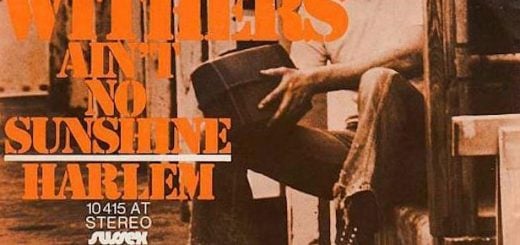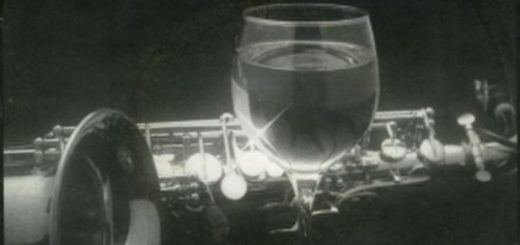“Grandma’s Hands” by Bill Withers
The lyrics of “Grandma’s Hands” are meant to serve as an ode to Bill Withers’ grandmother, and may we also say other maternal leaders of her ilk. There is a particular reason why this song caught on and is still well-known to this day. And that is because, even though it was obviously influenced by the African-American experience, as well Bill’s own personal recollections, it also speaks to the wider human audience, i.e. people who appreciate their grandmothers.
However, what perhaps makes “Grandma’s Hands” most identifiable to Black folk descending from the Southern United States, as most Black Americans do, is that historically African-American families tend to be matrilineal. In other words, children are usually closer to their mother’s side of the family than that of their father – and by extension their mother’s mother.
Couple this reality with the fact that grandfathers tend to pass away significantly earlier. According to Withers, even though he may have memories of his granddad, his grandma played a more prominent role in his upbringing.
Verse 1
For instance, the first verse illustrates that she had a regular presence in church. The implication would be that said attendance therefore resulted in the vocalist himself also attending regularly. And that is how he is able to recount how she used to ‘clap her hands’ and ‘play the tambourine so well’. So she was an important figure in his spiritual development.
Also like any grandmother worth her salt, Lula Galloway used to offer her young grandson advice. And what said instruction basically boiled down to is not trying to live life too fast. So even though she may have used her own personalized metaphor to get this point across, it is still a generally applicable lesson, i.e. one we’ve all likely been told by our own respective grandmothers in one way or another.
Verse 2
In the second verse, “grandma’s hands” take on a more symbolic meaning than in the first. Earlier, it largely represented different functions she actually performed with them. But herein, they are more metaphorical for Lula’s efforts in general.
Yes, Withers does, in his own way, let it be known that his grandmother was a very hard worker in the physical sense. But she also counseled single women, i.e. the ones who were bent out of shape due to issues in romance, i.e. being stuck in single motherhood.
Yes, such was a problem in the Black community even back then, with the current single-mother phenomenon having its origins in the days of slavery. And grandma was the one who would tell such ladies that, despite being heartbroken, they need to have more faith in God than in some dude.
Another constant in traditional African-American culture that is traceable to the days of old is child abuse. For example, if you find yourself the kid of a single Black mother, first of all being the descendants of slaves the whip is commonly used, even on children, in the name of discipline.
Secondly, said mother is likely stressed out due to having to take care of the children more or less on her own. And with Bill Withers’ own parents divorcing when he was still a toddler, well dear reader, grandma did in fact have to save his a-s from the lash from time to time. And this is something that he also remembers, how her interventions spared him some ‘whippings’ via his mom, Mattie Galloway.
Grandma Sadly Passes Away
And of course grandma served some more basic functions in Bill’s life, such as giving him treats and helping him when he was wounded. So when Lula Galloway passed away in 1953, as understood in the third verse, passing affected him adversely. Or put simply, the vocalist no longer has anyone in his life to serve the roles that she did.
And Bill also did an effective job of memorializing his grandmothers considering that, even now in 2021, we’re still talking about Lula Galloway.
In Conclusion
So even though the original intent was not to put this analysis into an African-American context, ultimately such was unavoidable. But at the end of the day experiences aren’t defined solely by race, and neither is sentiment.
So that’s why for instance we may have the likes of Barbra Streisand or Tony Orlando, who aren’t Black, also covering this song. That is to say that many of us have reason to appreciate our grandmothers, i.e. the sacrifices they made and the example they set in our upbringing. And this is perhaps the only hit song in American music industry history squarely dedicated to that cause.


Who was Lula Galloway?
Understandably, there isn’t much information online concerning the personal history of Lula Galloway (1868-1963). What is known is that her husband, i.e. Bill Withers’ maternal grandfather, was a former slave, and back in those days the South was still very much segregated.
So Lula by all means dealt with all the racist bulls–t also. (Withers was born and raised in a part of West Virginia known as Slab Fork.) And later on, in a 21st century interview, Bill did reveal that he and Lula were particularly close. He even noted that “grandmothers tend to gravitate towards the weak kid”, as in his youth he was the victim of bullying due to possessing a speech impediment.
When did Bill Withers release “Grandma’s Hands”?
This song was the second single from the late Bill Withers’ critically-acclaimed debut album, Just as I Am. This project also resulted in the dropping of another of Bill’s classics, Ain’t No Sunshine. And the official release month of said album was during May of 1971.
Song’s Achievements
“Grandma’s Hands” was a moderate hit, making it onto the Billboard Hot 100. It broke the top 20 of what is currently known as their Hot R&B/Hip-Hop Songs chart. But as implied earlier, it has experienced renown which transcends its chart showing, such as being covered by the likes of:
- Barbra Streisand
- Tony Orlando
- Everlast
- Take 6
- Gladys Knight
- Al Jarreau
Gospel acts like Take 6 and The Staple Singers and many others have also covered this classic. And fans of classic hip-hop who have a keen ear may also recognize this tune as being heavily sampled onto No Diggity (1996) by Blackstreet featuring Dr. Dre and Queen Pen, which was one of the biggest rap/R&B hits of the mid-1990s.
In an interview originally published in 2015, when asked which song in his catalog he’s “most proud of”, Bill Withers (1938-2020) chose “Grandma’s Hands”. And he also recognized this as the one tune which ‘if anybody remembers him, they’re going to remember him for this’, i.e. a piece that “ain’t never going out of style”.
Composing and Production
Needless to say, Bill Withers is the composer of “Grandma’s Hands”.
The producer of this track is Booker T. Jones, perhaps a name you’ve never heard of but one that proved worthy enough in musical circles to be enshrined in the Rock and Roll Hall of Fame in 1992 and granted a Grammy Lifetime Achievement Award in 2007.

As implied, this track came out early in Bill Withers’ career, when he was down with Sussex Records, a few years before blowing up and signing with, Columbia Records, one of the major players in the game. As such Withers was afforded more artistic freedom at the time, which empowered him to come out with folk-inspired (i.e. non-romantic) songs such as Grandma’s Hands. In fact Bill wrote this piece even prior to signing with Sussex.








